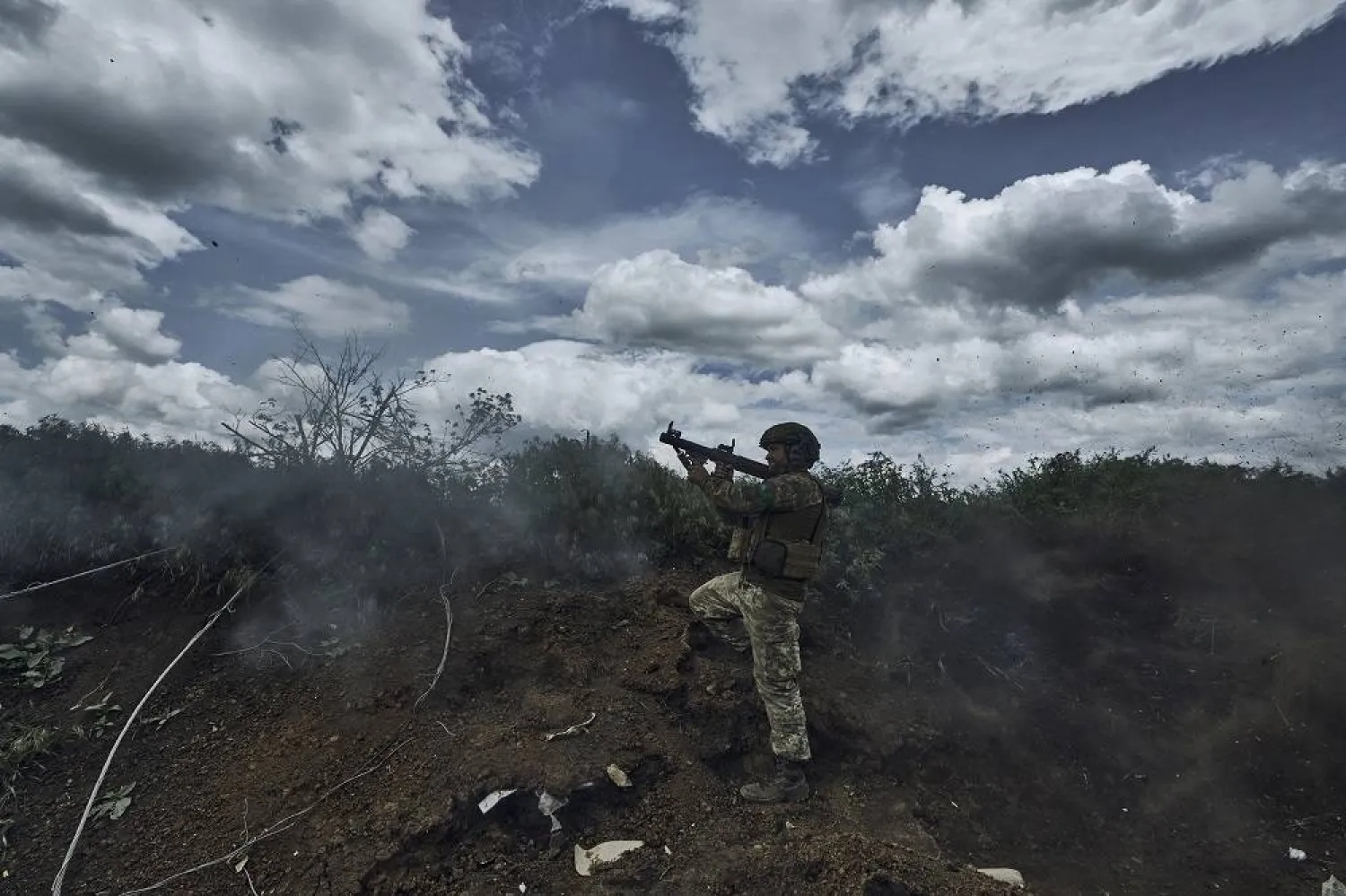The head of the Russian private army Wagner says his force lost more than 20,000 men in the drawn-out battle for Bakhmut. He said about half of those who died in the eastern Ukrainian city were Russian convicts recruited to fight in the 15-month-old war.
The figure stood in stark contrast to the widely disputed claims from Moscow that just over 6,000 of its troops were killed in the war as of January. That compares with official Soviet losses in the Afghanistan war of 15,000 troops between 1979-89. Ukraine hasn’t said how many of its soldiers have died since Russia’s full-scale invasion in February 2022.
Analysts believe the nine-month fight for Bakhmut alone has cost the lives of tens of thousands of soldiers, among them convicts who reportedly received little training before being sent to the front.
Russia’s invasion goal of "demilitarizing" Ukraine has backfired because Kyiv’s military has become stronger with the supply of weapons and training by its Western allies, Wagner chief Yevgeny Prigozhin said in an interview published late Tuesday with Konstantin Dolgov, a pro-Kremlin political strategist.
Prigozhin also said the Kremlin’s forces had killed civilians during the war, something Moscow has repeatedly and vehemently denied.
Prigozhin, a wealthy businessman with longtime links to Russian President Vladimir Putin, is known for his bluster — often spiced with obscenities — and has previously made unverifiable claims, some of which he later backtracked on.
Earlier this month, his spokespeople published a video of him shouting, swearing and pointing at about 30 uniformed bodies lying on the ground, saying they were Wagner fighters who died in a single day. He claimed the Russian Defense Ministry had starved his men of ammunition and threatened to give up the fight for Bakhmut.
He also said in Tuesday's interview it was possible that Kyiv’s anticipated counteroffensive in coming weeks, given continued Western support, might push Russian forces out of southern and eastern Ukraine as well as annexed Crimea.
"A pessimistic scenario: the Ukrainians are given missiles, they prepare troops, of course they will continue their offensive, try to counterattack," he said. "They will attack Crimea, they will try to blow up the Crimean bridge (to the Russian mainland), cut off (our) supply lines. Therefore we need to prepare for a hard war."
Prigozhin’s interview, posted in a Telegram channel that has only 50,000 followers, wasn’t picked up by Russia’s largest state-run or pro-Kremlin media and is unlikely to be widely seen. Nor did it appear to get any mentions among military bloggers, whose popular Telegram pages are important sources of information about the war to many Russians.
The Ukrainian General Staff said Wednesday that "heavy fighting" was continuing inside Bakhmut, days after Russia said that it had completely captured the devastated city.
Bakhmut lies in Donetsk province, one of four provinces Russia illegally annexed last fall and only partially controls.
The head of Ukraine’s ground forces, Oleksandr Syrskyi, said that Kyiv’s forces "are continuing their defensive operation" in Bakhmut, and had achieved unspecified "successes" on the city’s outskirts. He gave no further details.
A Ukrainian commander in Bakhmut told The Associated Press on Tuesday that the Ukrainians had a plan to push the Russians out of all occupied territory.
"But now we don’t need to fight in Bakhmut, we need to surround it from flanks and block it," Yevhen Mezhevikin said. "Then we should ‘sweep’ it. This is more appropriate, and that’s what we are doing now."
Elsewhere, Russian forces shot down "a large number" of drones in Russia’s southern Belgorod region, a local official said Wednesday, a day after Moscow announced that its forces crushed a cross-border raid in the area from Ukraine.
The drones were intercepted overnight, Belgorod Gov. Vyacheslav Gladkov said in a Telegram post, and another one was shot down Wednesday just outside the local capital, also called Belgorod. He said that no one had been hurt, but there was unspecified damage to property.
Ukrainian officials made no immediate comment.
Gladkov, the regional governor, said on Tuesday evening he had "questions for (Russia’s) Defense Ministry" following the attack that reportedly sowed alarm among locals and embarrassed the Kremlin.
During a Q&A session with residents on social media, Gladkov agreed with a participant who said that the Russian military’s actions in Belgorod "raised some questions."
In Moscow, Russia’s defense chief, Sergei Shoigu, vowed to respond "promptly and extremely harshly" to such attacks in the future.
On Tuesday, Russia said it had beaten back the cross-border raid, one of the most serious attacks of its kind during the war. The Defense Ministry said more than 70 attackers were killed in the battle, which lasted around 24 hours. It made no mention of any Russian casualties.
Ministry spokesman Igor Konashenkov said that local troops, airstrikes and artillery routed the attackers.
Twelve local civilians were wounded in the attack, officials said, and an older woman died during an evacuation.
Details of the incident in the rural region, lying about 80 kilometers (45 miles) north of the city of Kharkiv in eastern Ukraine and far from the front lines of the almost 15-month war, are unclear.
Moscow blamed the incursion that began Monday on Ukrainian military saboteurs. Kyiv described it as an uprising against the Kremlin by Russian partisans. It was impossible to reconcile the two versions, to say with certainty who was behind the attack or to ascertain its aims.
The region is a Russian military hub holding fuel and ammunition depots. Moscow officials declined to say how many attackers were involved or comment on why efforts to put down the assault took so long.
The Belgorod region, like the neighboring Bryansk region and other border areas, has witnessed sporadic spillover from the war, which Russia started by invading Ukraine in February 2022.
At least three civilians died and 18 others were wounded in Ukraine on Tuesday and overnight, the Ukrainian presidential office reported Wednesday, including in the southern Kherson region, where two elderly people died in air strikes.









